Find Help
More Items From Ergsy search
-
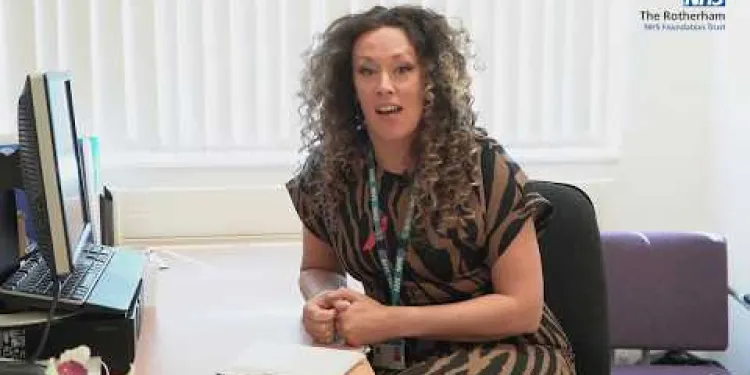
Vaginal Swab test for Gonorrhoea and Chlamydia
Relevance: 100%
-
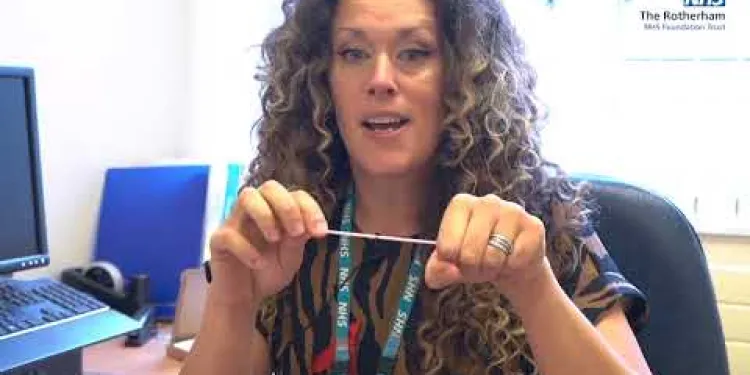
Rectal swab test for Gonorrhoea and Chlamydia
Relevance: 77%
-
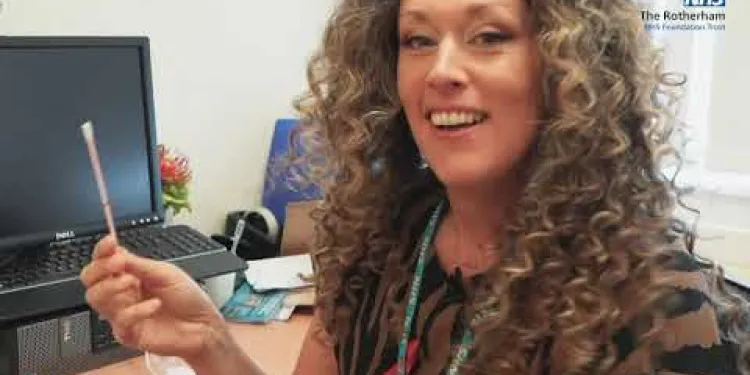
Pharyngeal swab for Gonorrhoea and Chlamydia
Relevance: 74%
-

Urine test for Gonorrhoea and Chlamydia
Relevance: 60%
-
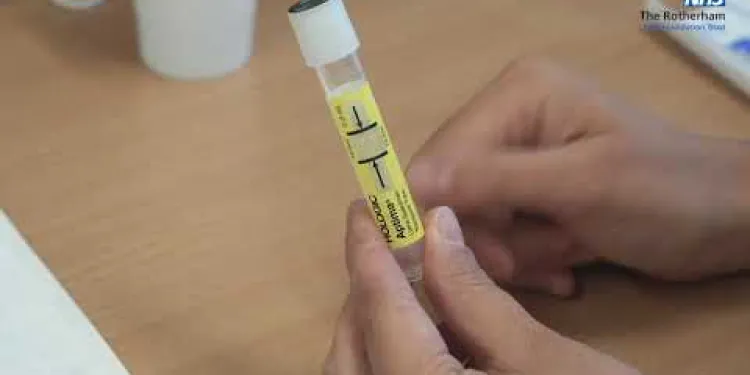
Urine test for Gonorrhoea and Chlamydia
Relevance: 57%
-
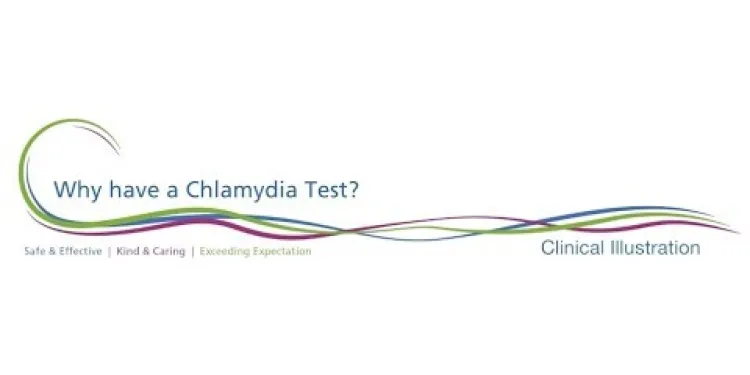
Getting tested for Chlamydia
Relevance: 44%
-
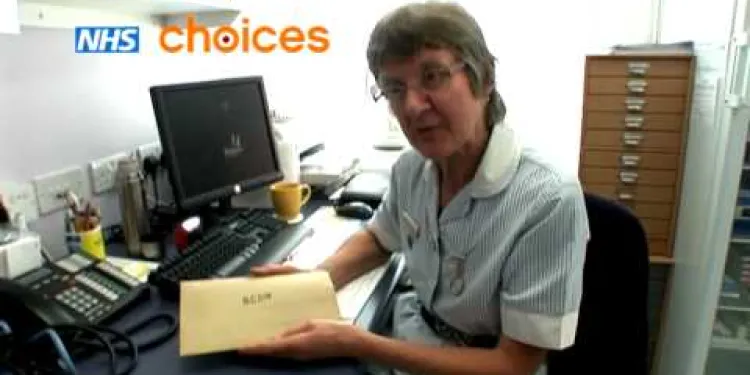
NHS - Chlamydia
Relevance: 40%
-

How is gonorrhoea diagnosed?
Relevance: 39%
-

What is chlamydia?
Relevance: 39%
-
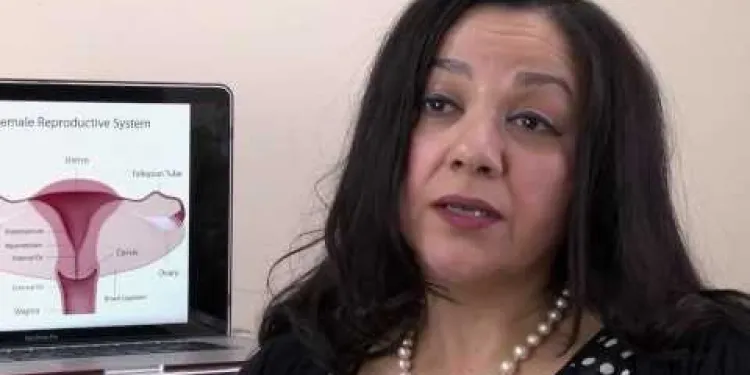
Chlamydia: The Silent Threat
Relevance: 38%
-

What is Gonorrhoea?
Relevance: 37%
-

Understanding Your Sexual Health - Gonorrhoea
Relevance: 36%
-
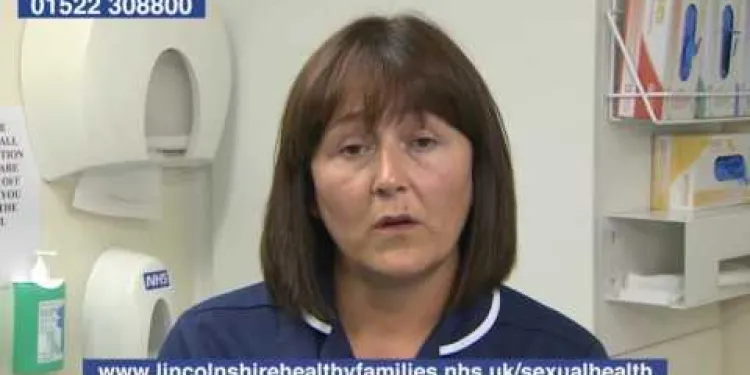
The symptoms of gonorrhoea
Relevance: 34%
-
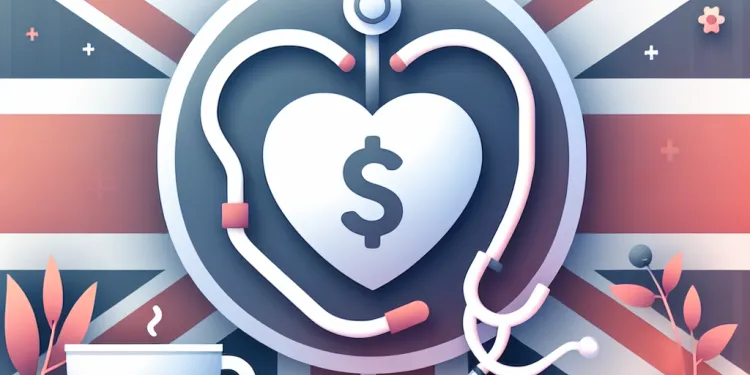
What should one do if they suspect they have gonorrhoea?
Relevance: 33%
-
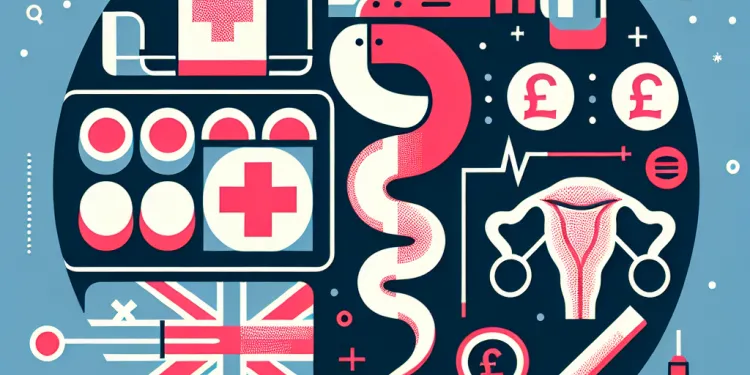
Can gonorrhoea be asymptomatic?
Relevance: 31%
-

How is gonorrhoea transmitted?
Relevance: 31%
-

Can gonorrhoea be prevented?
Relevance: 30%
-

How often should one get tested for gonorrhoea?
Relevance: 30%
-

Vaginal Cancer
Relevance: 29%
-

Are there any long-term effects of gonorrhoea?
Relevance: 25%
-

Is there a vaccine for gonorrhoea?
Relevance: 24%
-

What antibiotics are used to treat gonorrhoea?
Relevance: 24%
-

Can you still get gonorrhoea after treatment?
Relevance: 24%
-

Let's Talk Sexual Health - Home Self Testing Kits
Relevance: 23%
-

Why is antibiotic resistance a concern with gonorrhoea?
Relevance: 23%
-

Can gonorrhoea infect areas other than the genital organs?
Relevance: 22%
-

Let's Talk Sexual Health - Home Self Testing Kits
Relevance: 22%
-
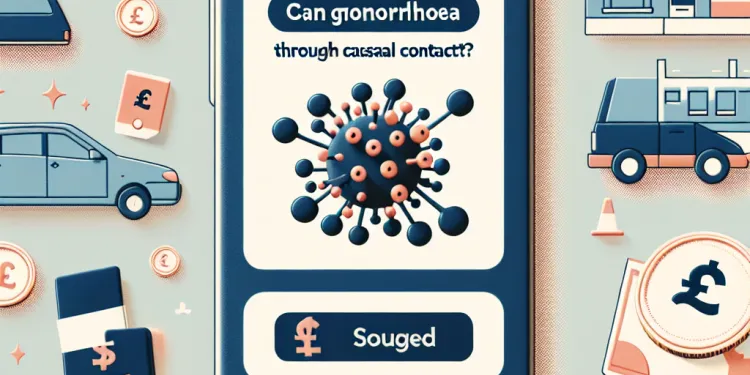
Can gonorrhoea be spread through casual contact?
Relevance: 22%
-

What is 'the clap'?
Relevance: 20%
-
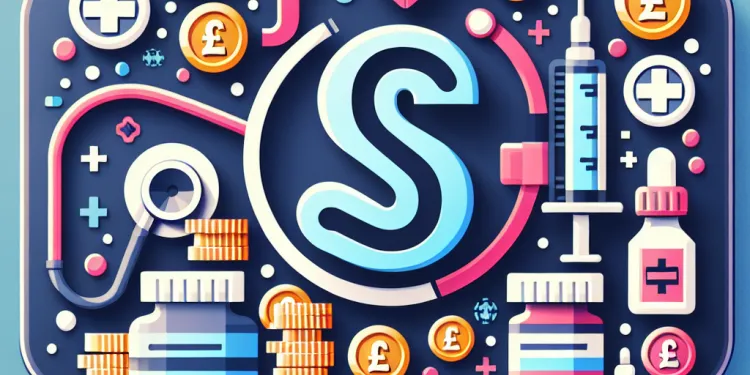
Is gonorrhoea treatable?
Relevance: 19%
-

Sexually transmitted infections STIs
Relevance: 18%
-

Understanding Your Sexual Health - Pelvic Inflammatory Disease
Relevance: 17%
-

NHS STI (Sexually Transmitted Infections) Information Video
Relevance: 17%
-

BSL Pelvic inflammatory disease (PID)
Relevance: 17%
-
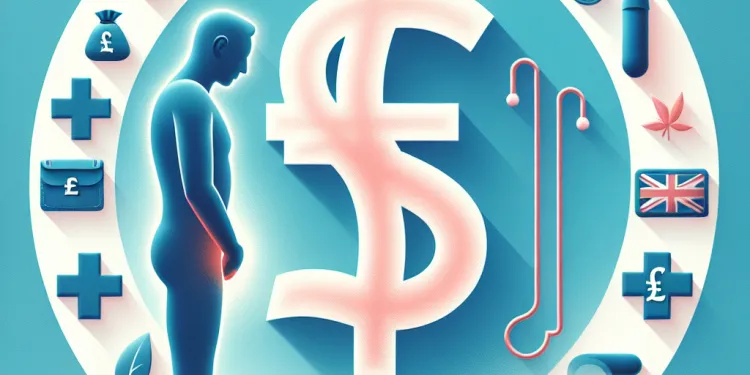
Can gonorrhoea cause complications if left untreated?
Relevance: 15%
-
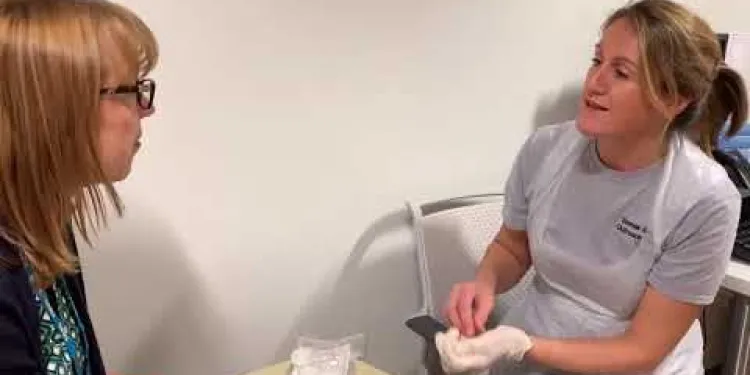
Sexual Health - HIV Testing
Relevance: 14%
-

Is HPV testing available?
Relevance: 13%
-

Are there any risks associated with the womb lining test?
Relevance: 13%
-

What is the womb lining test?
Relevance: 12%
-

Is there an autism test?
Relevance: 12%
Vaginal Swab Test for Gonorrhoea and Chlamydia
Introduction
The vaginal swab test is a crucial diagnostic tool used to detect sexually transmitted infections (STIs) such as Gonorrhoea and Chlamydia. These infections are quite prevalent and can lead to serious health complications if left untreated. In the United Kingdom, testing is commonly available through the NHS and various sexual health clinics.
What is Gonorrhoea?
Gonorrhoea is a bacterial STI caused by the bacterium Neisseria gonorrhoeae. It often infects the genital areas, as well as the rectum and throat. Symptoms can include vaginal discharge, pain during urination, and pelvic pain, but it's crucial to note that some women may be asymptomatic, making testing all the more important.
What is Chlamydia?
Chlamydia is another common bacterial STI, caused by the bacterium Chlamydia trachomatis. Like Gonorrhoea, it can infect the genital areas and may cause symptoms such as abnormal vaginal discharge and pain during intercourse. However, many women do not show symptoms, which underscores the importance of regular screening.
The Testing Procedure
The vaginal swab test is a straightforward and generally painless procedure. A healthcare provider will use a small, soft swab to collect a sample of cells from the vagina. This sample is then sent to a laboratory for analysis to detect the presence of Gonorrhoea and Chlamydia bacteria.
When to Get Tested?
It is recommended to get tested if you experience symptoms of an STI, have a new sexual partner, or have multiple partners. Additionally, routine screening is advisable for sexually active women under 25, as well as women over 25 with risk factors such as new or multiple sexual partners.
Importance of Early Detection
Early detection of Gonorrhoea and Chlamydia is essential for effective treatment and to prevent complications such as pelvic inflammatory disease (PID), infertility, and the potential for mother-to-child transmission during childbirth. Both infections are typically treated with antibiotics.
Confidentiality and Support
In the UK, sexual health services are confidential, meaning your results and personal information are kept private. Health professionals provide not only diagnostic services but also support and advice on treatment and prevention.
Conclusion
The vaginal swab test is a vital diagnostic tool for detecting Gonorrhoea and Chlamydia. Regular testing and early detection can prevent severe health complications and promote better sexual health. If you believe you are at risk, contact your local healthcare provider or sexual health clinic for advice and testing.
Vaginal Swab Test for Gonorrhoea and Chlamydia
Introduction
A vaginal swab test helps find out if someone has infections called Gonorrhoea or Chlamydia. These infections are spread through sex and can make you very sick if you do not get medicine. In the UK, you can get tested at NHS or local health clinics.
What is Gonorrhoea?
Gonorrhoea is an infection caused by germs. It often affects private parts, and it can also affect the bottom and throat. Signs of Gonorrhoea can be liquid from the vagina, pain when peeing, and pain in the tummy. Some women do not have symptoms, so testing is important.
What is Chlamydia?
Chlamydia is another infection spread through sex. It is caused by a different germ. Like Gonorrhoea, it can make a woman have strange liquid from her vagina or pain when having sex. Many women do not feel sick, so regular tests help catch it early.
The Testing Procedure
The doctor uses a small, soft stick, called a swab, to get a sample from inside the vagina. This does not usually hurt. The sample goes to a lab to check for Gonorrhoea and Chlamydia germs.
When to Get Tested?
You should get tested if you have symptoms of an infection, have a new boyfriend or girlfriend, or have more than one person you have sex with. Women under 25 should have regular tests, and older women with new partners should too.
Importance of Early Detection
Finding Gonorrhoea and Chlamydia early is very important. If you don't treat these infections, they can make you unable to have babies, and they can also make you very sick. These infections are treated with medicine called antibiotics.
Confidentiality and Support
Your test results and information are private. Health workers keep it secret. They also offer help and advice on what to do next and how to prevent infections.
Conclusion
Vaginal swab tests are important for finding infections like Gonorrhoea and Chlamydia. Getting tested and treated can keep you healthy. If you think you might have an infection, ask a doctor or visit a health clinic for help and testing.
Frequently Asked Questions
What is a vaginal swab test for Gonorrhoea and Chlamydia?
A vaginal swab test for Gonorrhoea and Chlamydia is a medical test where a sample is taken from the vagina using a swab to detect the presence of the sexually transmitted infections (STIs) Gonorrhoea and Chlamydia.
Why would I need a vaginal swab test for Gonorrhoea and Chlamydia?
You may need a vaginal swab test if you have symptoms of an STI, have had unprotected sex, or your healthcare provider recommends it as part of routine sexual health screening.
How is the vaginal swab test performed?
The test is usually performed by inserting a sterile swab into the vagina to collect a sample of cells and secretions, which is then sent to a laboratory for analysis.
Is the vaginal swab test painful?
The test can be slightly uncomfortable, but it is generally not painful. If you experience significant discomfort or pain, inform your healthcare provider.
How should I prepare for a vaginal swab test?
There is usually no special preparation required for a vaginal swab test. You may be advised to avoid using tampons, douching, or having vaginal intercourse 24 hours before the test.
How long does it take to get results from a vaginal swab test?
Results can typically take anywhere from a few days to a week, depending on the laboratory and the healthcare provider.
What do I do if my test results are positive for Gonorrhoea or Chlamydia?
If your test results are positive, your healthcare provider will discuss treatment options with you. Both Gonorrhoea and Chlamydia are treatable with antibiotics.
Can I have a vaginal swab test during my period?
It is usually best to avoid having the test during your period, but it can still be performed if necessary. Inform your healthcare provider if you are menstruating.
Are there any risks associated with a vaginal swab test?
There are minimal risks associated with a vaginal swab test. It is a safe procedure, but you may experience slight discomfort during the sample collection.
Can I get tested for other STIs with a vaginal swab test?
Yes, in addition to Gonorrhoea and Chlamydia, the sample collected can also be tested for other STIs, depending on what is requested by your healthcare provider.
Where can I get a vaginal swab test for Gonorrhoea and Chlamydia in the UK?
You can get the test at sexual health clinics, some GP surgeries, community health services, and through private healthcare providers in the UK.
Is the vaginal swab test for Gonorrhoea and Chlamydia free in the NHS?
Yes, the test is available free of charge through the NHS at sexual health clinics and some GP surgeries.
Can I take the vaginal swab test at home?
Yes, there are home testing kits available that allow you to collect the sample yourself and send it to a lab for analysis. Ensure the kit is from a reputable provider.
How often should I get tested for Gonorrhoea and Chlamydia?
Testing frequency depends on your sexual activity and risks. It is generally recommended to get tested at least once a year, or more frequently if you have multiple partners or unprotected sex.
Can a vaginal swab test during pregnancy harm the baby?
No, it is safe to have a vaginal swab test during pregnancy. It is important to check for STIs during pregnancy to ensure proper treatment and prevent complications.
What is a vaginal swab test for Gonorrhoea and Chlamydia?
A vaginal swab test checks for germs called Gonorrhoea and Chlamydia.
Germs are tiny creatures that can make you sick.
The test helps doctors find out if you have these germs in your body.
During the test, a nurse or doctor will use a small, soft stick. It's called a swab. They gently touch the inside of your vagina with it.
This does not hurt much and is very quick.
If you find reading hard, you can ask someone to read this to you.
You can also use tools that read words out loud on a computer or phone.
A vaginal swab test checks for two infections: Gonorrhoea and Chlamydia. A doctor or nurse uses a soft stick called a swab to take a sample from inside the vagina. This helps find out if these germs are there. Gonorrhoea and Chlamydia are infections that you can get from having sex.
Why do I need a vaginal swab test for Gonorrhoea and Chlamydia?
You might need this test to check for infections. These infections are called Gonorrhoea and Chlamydia. They are germs that you can catch. They can make you unwell.
The test helps doctors find out if you have these germs.
If you do have them, the doctor can give you medicine to feel better.
You can ask someone you trust to help understand the test. Talking to a nurse or doctor can also help.
You might need a vaginal swab test if:
- You have signs of an infection.
- You had sex without a condom.
- Your doctor says you need one to check your health.
Tools like picture diagrams can help explain the test process better.
How do you do a vaginal swab test?
To do the test, a clean cotton swab is gently put into the vagina. This takes a small bit of cells and other stuff. The sample is then sent to a lab to be checked.
Does a vaginal swab test hurt?
The test might feel a little uncomfortable, but it usually does not hurt. If it starts to hurt a lot, tell your doctor or nurse.
How do I get ready for a vaginal swab test?
A vaginal swab test is a simple health test.
Here is how you can get ready:
- Wear clothes that are easy to take off and put on.
- Try not to use creams or medicines in your vagina before the test.
- If you have questions, ask the nurse or doctor.
If you feel worried before the test, here are some things that might help:
- Take deep breaths to stay calm.
- Bring a friend or family member with you.
- Write down any questions you want to ask the doctor.
It is okay to feel a little nervous, but the test is quick and helps make sure you are healthy.
You usually don't need to do anything special to get ready for a vaginal swab test. But you might be told not to use tampons, wash inside your vagina, or have sex for 24 hours before the test.
How long until you know the results from a vaginal swab test?
A vaginal swab test is a check that doctors do to find out more about your health. It might take a few days to get the answers from this test. Sometimes it can take up to a week. It's good to ask your doctor when you can expect to hear back.
If waiting feels hard, here are some ideas that might help:
- Ask someone you trust to help you remember when you will get the results.
- Write down the date when the doctor said you would get the answers.
- Do something fun or relaxing while you wait; it can make the time go by faster.
Results usually take a few days to a week. It depends on the lab and your doctor.
What should I do if my test says I have Gonorrhoea or Chlamydia?
If your test shows you have Gonorrhoea or Chlamydia, don't worry. Here's what you can do:
- See a doctor or nurse. They will help you get the right medicine.
- Take all your medicine as the doctor says. This will help you get better.
- Tell your partner to get tested too. This will stop spreading the germs.
- You can use a phone or a calendar to remind you about your medicine.
- If you have questions, it’s okay to ask your doctor or nurse.
If your test shows you have the illness, your doctor will talk with you about how to make you better. Medicines called antibiotics can help you get better from Gonorrhoea and Chlamydia.
Can I have a vaginal swab test during my period?
Yes, you can have a vaginal swab test when you have your period. If you have questions, talk to your doctor or nurse. They are there to help you.
Here are some tips to help:
- Ask a family member or friend to go with you.
- Write down any questions you have before the test.
- Use a calendar to keep track of your period dates and appointments.
It is better not to have the test while you are on your period. But, you can still have the test if needed. Tell your doctor or nurse if you are having your period.
Are there any risks with a vaginal swab test?
A vaginal swab test is usually very safe.
Some people might feel a bit of discomfort.
If you feel worried or scared, you can talk to the doctor or nurse.
They can help you feel better and tell you more.
You can ask someone you trust to come with you.
A vaginal swab test is very safe. There is not much risk. It might feel a little uncomfortable when they take the sample.
Can I check for other infections with a vaginal swab test?
A vaginal swab test can look for different infections. These are called STIs. You can talk to a doctor or nurse to find out what kinds of STIs the swab can check.
Helpful Tips: Ask questions if you are unsure. You can also use pictures or apps to help understand better.
Yes, the sample can be tested for more infections too. It can check for Gonorrhoea, Chlamydia, and other infections, if your doctor asks for it.
If you find reading hard, try using a ruler or a piece of paper to follow each line. You can also ask someone to read with you and explain words you don't know.
Where can I get tested for Gonorrhoea and Chlamydia in the UK?
You can get a test for Gonorrhoea and Chlamydia at these places:
- Your doctor (GP)
- A sexual health clinic
- A young people’s clinic
It is a good idea to call first and ask if they do the test you need.
There are also online services where you can order a test kit to do at home.
These tools can help you:
- Bring a friend or family member for support.
- Ask the staff to explain things slowly.
You can get the test in these places:
- Sexual health clinics
- Some GP surgeries (where you see a family doctor)
- Community health services
- Private healthcare providers
These are places in the UK where you can go to get the test.
Ask a friend or family member to help you if you need support. You can also use a simple map to find the closest clinic or doctor.
Can you get a free test for Gonorrhoea and Chlamydia at the NHS?
The NHS can test you for Gonorrhoea and Chlamydia. You can get a free swab test. A swab test is when a nurse or doctor uses a small stick to take a sample. You do not have to pay for this test at the NHS.
If you need help, you can ask someone you trust to go with you. You can also ask the nurse or doctor to explain things slowly. They are there to help you.
Yes, you can get the test for free from the NHS. You can go to sexual health clinics or some GP surgeries to get it.
Can I do a vaginal swab test at home?
Yes, you can do a vaginal swab test at home. It is a simple test where you use a cotton swab to take a sample from inside your vagina. Here are some tips to help:
- Read all the instructions carefully before you start.
- Wash your hands to keep everything clean.
- Ask someone you trust for help if you feel unsure.
- Use a timer or clock to make sure you wait the right amount of time.
If you feel worried, it's okay to ask a doctor or nurse for more information.
Yes, you can get kits to test at home. You collect a sample yourself and send it to a lab. Make sure the kit comes from a trusted place.
How often should I get tested for Gonorrhoea and Chlamydia?
You should get tested for Gonorrhoea and Chlamydia every year if you are sexually active, or if you have a new partner. It is good to check your health regularly.
If you think something might be wrong, see a doctor or a nurse. They can help you.
You can also try using reminders or apps to help you remember when to get tested.
How often you should get tested depends on how you have sex and who with. It is a good idea to get tested at least once a year. You should get tested more often if you have sex with lots of people or don't use protection, like condoms.
Here are some things that might help you:
- Set a reminder on your phone or calendar to get tested.
- Talk to your doctor or nurse about how often you should get tested.
- If you are not sure, talk to someone you trust for advice.
- Look for clinics that offer free or low-cost testing.
Is a vaginal swab test safe for the baby during pregnancy?
A vaginal swab test is a way doctors check if everything is okay during pregnancy. It does not hurt the baby. Doctors use this test to make sure both the mother and baby are healthy.
If you have questions, talk to your doctor. You can also bring a friend or family member to help understand the information. Drawing pictures and using simple words can also help explain things clearly.
No, having a vaginal swab test during pregnancy is safe. It's important to check for infections called STIs when you are pregnant. This helps to make sure you get the right treatment and stay healthy. This also helps your baby stay healthy.
Useful Links
Have you found an error, or do you have a link or some information you would like to share? Please let us know using the form below.
-->
This website offers general information and is not a substitute for professional advice.
Always seek guidance from qualified professionals.
If you have any medical concerns or need urgent help, contact a healthcare professional or emergency services immediately.
Some of this content was generated with AI assistance. We’ve done our best to keep it accurate, helpful, and human-friendly.
- Ergsy carfully checks the information in the videos we provide here.
- Videos shown by Youtube after a video has completed, have NOT been reviewed by ERGSY.
- To view, click the arrow in centre of video.
- Most of the videos you find here will have subtitles and/or closed captions available.
- You may need to turn these on, and choose your preferred language.
- Go to the video you'd like to watch.
- If closed captions (CC) are available, settings will be visible on the bottom right of the video player.
- To turn on Captions, click settings .
- To turn off Captions, click settings again.
More Items From Ergsy search
-

Vaginal Swab test for Gonorrhoea and Chlamydia
Relevance: 100%
-

Rectal swab test for Gonorrhoea and Chlamydia
Relevance: 77%
-

Pharyngeal swab for Gonorrhoea and Chlamydia
Relevance: 74%
-

Urine test for Gonorrhoea and Chlamydia
Relevance: 60%
-

Urine test for Gonorrhoea and Chlamydia
Relevance: 57%
-

Getting tested for Chlamydia
Relevance: 44%
-

NHS - Chlamydia
Relevance: 40%
-

How is gonorrhoea diagnosed?
Relevance: 39%
-

What is chlamydia?
Relevance: 39%
-

Chlamydia: The Silent Threat
Relevance: 38%
-

What is Gonorrhoea?
Relevance: 37%
-

Understanding Your Sexual Health - Gonorrhoea
Relevance: 36%
-

The symptoms of gonorrhoea
Relevance: 34%
-

What should one do if they suspect they have gonorrhoea?
Relevance: 33%
-

Can gonorrhoea be asymptomatic?
Relevance: 31%
-

How is gonorrhoea transmitted?
Relevance: 31%
-

Can gonorrhoea be prevented?
Relevance: 30%
-

How often should one get tested for gonorrhoea?
Relevance: 30%
-

Vaginal Cancer
Relevance: 29%
-

Are there any long-term effects of gonorrhoea?
Relevance: 25%
-

Is there a vaccine for gonorrhoea?
Relevance: 24%
-

What antibiotics are used to treat gonorrhoea?
Relevance: 24%
-

Can you still get gonorrhoea after treatment?
Relevance: 24%
-

Let's Talk Sexual Health - Home Self Testing Kits
Relevance: 23%
-

Why is antibiotic resistance a concern with gonorrhoea?
Relevance: 23%
-

Can gonorrhoea infect areas other than the genital organs?
Relevance: 22%
-

Let's Talk Sexual Health - Home Self Testing Kits
Relevance: 22%
-

Can gonorrhoea be spread through casual contact?
Relevance: 22%
-

What is 'the clap'?
Relevance: 20%
-

Is gonorrhoea treatable?
Relevance: 19%
-

Sexually transmitted infections STIs
Relevance: 18%
-

Understanding Your Sexual Health - Pelvic Inflammatory Disease
Relevance: 17%
-

NHS STI (Sexually Transmitted Infections) Information Video
Relevance: 17%
-

BSL Pelvic inflammatory disease (PID)
Relevance: 17%
-

Can gonorrhoea cause complications if left untreated?
Relevance: 15%
-

Sexual Health - HIV Testing
Relevance: 14%
-

Is HPV testing available?
Relevance: 13%
-

Are there any risks associated with the womb lining test?
Relevance: 13%
-

What is the womb lining test?
Relevance: 12%
-

Is there an autism test?
Relevance: 12%


